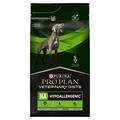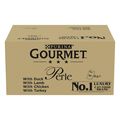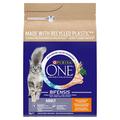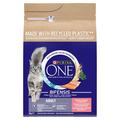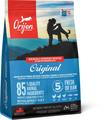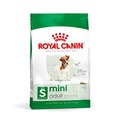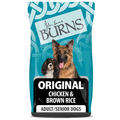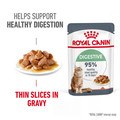Choice is abundant when choosing a food for your cat or dog. With so many varieties online and on the shelves, ranging from wet and dry, complete and complementary, to breed-specific and lifestage-specific, it can be difficult knowing what to go for, especially if you don’t really know the benefits of each.
Puppy foods were first introduced to the pet food market in the 1970s and were followed a decade later with other lifestage-specific foods, formulated for adult and senior animals. Since then they have been a popular choice amongst pet owners, who believe that feeding for their pet’s age and physiological condition is the healthiest way forward.
And they may be right.
So, what are the benefits of lifestage-specific foods and why might they be a sensible choice if you’re unsure about what to feed?
Puppy/kitten/junior foods:
These consider a puppy or kitten’s unique dietary needs, including their need for energy-rich foods that are high in calories and contain balanced amounts of protein and calcium. Together, all are essential for healthy nursing, growth and development in animals with twice as much energy as their adult counterparts!
Depending on your puppy’s breed, they will mature at varying rates, so you’ll need to consider this when choosing a suitable junior food. Large breeds can take up to 18 months to exit the puppy stage, while smaller dogs are adults at 9-12 months. Likewise, kittens can be fully grown at 9 months, so can move onto adult foods at this stage.
As puppies and kittens get many of the nutrients they need during the nursing period, it is essential that nursing animals are also supported through their diet. Queens need calcium and protein to produce milk for their kittens, and pregnant bitches should take on 30% more energy before the puppies are born, so benefit from a digestible, energy-dense puppy food.
Adult foods:
These are generally formulated to support and maintain optimal health and promote all-round quality of life in animals that have reached adulthood.
The ingredients are balanced and take into account the fact that obesity is a major problem affecting adult cats and dogs (particularly after neutering), so are designed to help reduce the risk of weight gain by containing less fat and more antioxidants.
If you pet has any medical conditions then we would advise speaking to your vet about a more suitable diet. It may be that a different type of food with a varying balance of nutrients is going to be more beneficial.
Senior foods:
As your pet enters its golden years, feeding a senior diet will help support the mind and body as they start to slow down. Again, when this happens will depend on your pet’s breed, but is usually around the age of 7 years and above.
Senior foods contain ingredients tailored to heart, kidney and digestive health and are highly digestible and easy to chew. As older animals tend to lose their sense of taste and smell to some extent, you’ll find that these foods are designed to be extra palatable and enticing – also helping with older animals that have a reduced appetite.
While appetite and body weight are likely to reduce slightly, if you notice any drastic changes or are concerned, always consult with your vet.
If you feed your pet a lifestage-specific food, we’d love to hear from you! Comment below and tell us why you choose it over other options :)
Written by: Hannah

